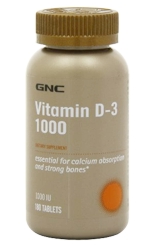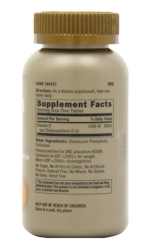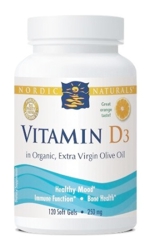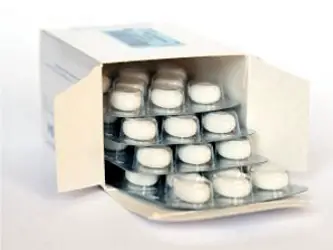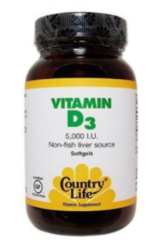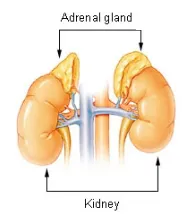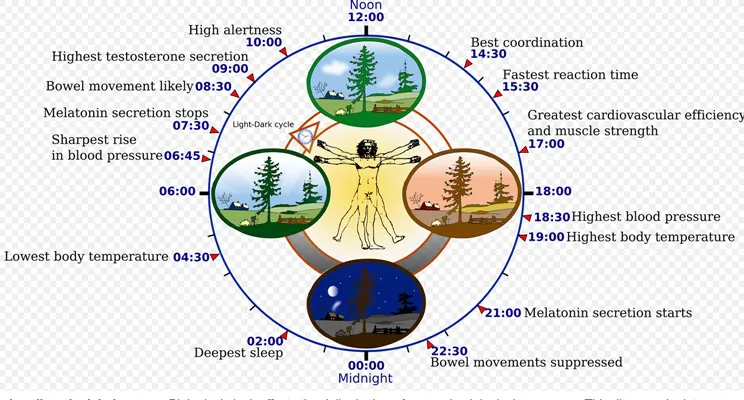
Can Vitamin D Save Your Life?
Introduction - Can Vitamin D Save Your Life?I recently discovered Vitamin D can save your life. How did I come to this conclusion? Recently a family member in his 50s was experiencing lots of unexplained health issues.
After testing by his physician it was discovered the majority of his symptoms were linked to very low levels of {{asin=B001KYO4WU,text=vitamin D}} in his body. He was surprised by the test results and asked me to research Vitamin D.
Although I've always known about the value of Vitamin D for healthy hair and skin, I discovered people who are deficient in vitamin D are much more at risk of a stroke.
The risk of a stroke is nothing to take lightly. Stroke is the third leading cause of death in the United States. In fact, stroke was the cause of death of my own mother close to twenty years ago.
Low Levels Of Vitamin D
According to a report in Science Daily, low levels of vitamin D, the nutrient obtained from exposure to sunlight, doubles the risk of stroke in Caucasians. In their study, Science Daily performed analysis on "Nearly 8,000 initially healthy men and women of both races".
In the study group 6.6 percent of Caucasians and 32.3 percent of African Americans had severely low blood levels of vitamin D. What constitutes low levels of vitamin D? Experts suggest it's less than 15 nanograms per milliliter.
The Science Daily research team noted that it's testing failed to explain why African Americans, who are more likely to be vitamin D deficient than other races, also suffer from higher rates of stroke, but apparently not due to lack of vitamin D.
It's possible the number of fatal strokes recorded in African Americans might simply not have been statistically sufficient to find a strong enough relationship with vitamin D deficits.
Vitamin D Deficiency Link To Arterial Stiffness
Optimizing your vitamin D levels is an incredibly powerful way to have a major impact on your health. Additional research released a few years ago found vitamin D deficiency has a high association with arterial stiffness, a key risk factor for heart disease and stroke.
A study from Finland also found those with the lowest vitamin D levels had a 25 percent higher risk of dying from heart disease or stroke, and when only stroke was looked at, those with the lowest levels had twice the risk as those with the highest.
Stroke Definition
Strokes occur when a blood clot blocks an artery or blood vessel, effectively cutting off normal blood flow to the brain. When this happens, cells in the brain die and damage can result.
Strokes are so insidious because they often occur without any warning. History has shown the longer your brain goes without oxygen, the greater the risk of permanent damage.
It's critical that emergency help be sought without one hour of suffering from a stroke. There are known medications which can dissolve a blood clot blocking blood flow to your brain.
Symptoms of a stroke appear suddenly. They can include numbness or weakness, usually on one side of the body, dizziness, loss of balance, confusion, severe headache or problems with seeing. When my mother had the first of a series of strokes, she had problems with seeing out of one eye, felt dizzy and become very confused.
While it's possible to treat a stroke, it's always better to prevent it whenever possible.
Testing For Vitamin D Deficiencies
The best way to determine your current vitamin D levels is to have your blood tested by your physician. The test you need is the 25(OH)D, or 25-hydroxyvitamin D test.
Once you start taking vitamin D or increasing your sun exposure, which provides natural D, you may need to get tested on a regular basis to make sure you're keeping your levels where they need to be.
Vitamin D deficiency is widespread in the United States. During late winter average vitamin D is less than 20 ng/ml. which is considered a very serious rate of vitamin D deficiency. Experts estimate over 95 percent of U.S. senior citizens may be deficient in vitamin D, along with 85 percent of Americans of all ages.
Vitamin D Offer Gene-Regulating Functions
Although Vitamin D has been touted for the benefits it provides to bone health, scientists have found approximately 3,000 genes which are upregulated by vitamin D. What does this mean?
Every cell in the human body contains a DNA library to address how to deal with virtually every type of stimulus the body encounters.
The Master Key for this DNA library is vitamin D. Because vitamin D is the body's master key, it addresses many different tissues within the body and impacts a wide range of different diseases or related health challenges.
Currently vitamin D is the only documented seco-steroid hormone which serves multiple gene-regulating function in the human body. This vitamin produces multiple potent results including repair and maintenance.
Vitamin D has been proven to help increase the body's natural anti-inflammatory cytokinesin as well as suppressing vascular calcification. Of course it's also known to reduce risk of arterial stiffness, which is a major risk factor for stroke.
Optimizing Vitamin D Levels
Although the current RDA for vitamin D is listed below, many experts believe the listed limits are not nearly enough for optimal health and stroke prevention:
400 IU for infants, children and adolescents
200 IU for adults up to age 50400 IU for adults aged 51 to 60
600 IU for seniors over 60800 IU for adults 70 or older
Many experts now suggest, based on recent research, that everyone needs approximately 35 IU's of {{asin=B002J0PDZG,text=vitamin D}} per pound of body weight. This recommendation includes children, the elderly and pregnant women.
Ideally, your body will make all the vitamin D you need from safe sun exposure. But if you're not able to get sun exposure on a regular basis (and the exposure must be on large portions of your skin, not just your face or hands), you may need to supplement with oral vitamin D3.
The only accurate way to determine your optimal vitamin D dose is to get your blood tested. For optimal health and stroke risk reduction, experts suggest that most people maintain a vitamin D level of at least 50ng/ml and perhaps as high as 80-90 ng/ml all year long.
Avoid Excessive Amounts Of Vitamin D
Older adults over 70 need up to 800 IU of vitamin D per day. Never exceed 4,000 IU of vitamin D unless prescribed by your physician to address a deficiency or other .
Too much vitamin D may cause kidney damage. Other symptoms of toxic amounts of D include confusion, nausea, and weakness.
Links Between Stress And Strokes
Studies have also found that managing stress levels can make a big difference in preventing strokes. The more stressed you are, the greater your risk of stroke. Experts believe psychological distress will greatly increase your risk of suffering a stroke.
A UCL Study published in 2012 found a direct link between psychological distress and risk of death from a stroke. “Psychological distress was associated with death from cardiovascular disease, and the relation remained consistent for specific disease outcomes, including ischemic heart disease and cerebrovascular disease,” writes Dr. Mark Hamer, of UCL Epidemiology & Public Health, with co-authors.
Researchers found that for every notch lower a person scored on a well-being scale, their risk of stroke increased by 11 percent. It should be noted that studies also concluded that the higher the psychological distress in a stroke victim's life, the higher the risk that the stroke would be fatal.
Other Ways To Help Prevent Strokes
According to the National Stroke Association up to 80 percent of all strokes are preventable. How do you prevent them? Know your risk factors and work to minimize them. What are the known risk factors for stroke?
High blood pressure
ObesityHigh triglycerides and elevated homocysteine levels
Low levels of HDL (good) cholesterol and high levels of LDL (bad) cholesterolSmoking
Vitamin D deficiencyPoor diet and nutrition
Experts believe proper diet (low sugar, natural foods), regular exercise. proper vitamin consumption and a health weight level will help to reduce a risk of stroke.
Vitamin D And Food
Few foods naturally contain vitamin D. Fatty fish and cod-liver oil have the highest levels. Smaller amounts are available in beef liver, cheese, and egg yolks. Most of the vitamin D consumed in the U.S. diet comes from fortified foods, such as milk.
Summary - Can Vitamin D Save Your Life?
The answer is yes, it can. However, there are other factors which can also extend your life including leading a healthy lifestyle with nutritious food and regular exercise.
Emotional health is also key. Minimize levels of stress and get proper rest. Remember, take the time to stop and smell the roses.
Note: The information on the Website and in this blog is provided "as is" for general information only. It's not intended as medical advice, and should not be relied upon, as a substitute for consultations with qualified health professionals who are familiar with your individual medical needs. Be sure to consult with your medical professional before undertaking any dietary supplementation.Social Media Network Information
Please follow us on Twitter at: https://Twitter.com/HairBoutique. I look forward to meeting new people from all walks of Twitter and learning from their Tweets.


